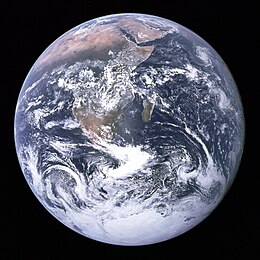One of our legacies from the last century, which was dominated by two world wars and the cold war, is a sense of security that is defined almost exclusively in military terms. It so dominates Washington thinking that the U.S. foreign affairs budget of $701 billion in 2009 consisted of $661 billion for military purposes and $40 billion for foreign assistance and diplomatic programs.
But the situation in which we find ourselves pushes us to redefine security in twenty-first century terms. The time when military forces were the prime threat to security has faded into the past. The threats now are climate volatility, spreading water shortages, continuing population growth, spreading hunger, and failing states. The challenge is to devise new fiscal priorities that match these new security threats.
Douglas Alexander, former U.K. Secretary of State for International Development, put it well in 2007: “In the 20th century a country’s might was too often measured in what they could destroy. In the 21st century strength should be measured by what we can build together.”
The good news is that in the United States the concept of redefining security is now permeating not only various independent think tanks but the Pentagon itself. A number of studies have looked at threats to U.S. interests posed by climate change, population growth, water shortages, and food shortages-—key trends that contribute to political instability and lead to social collapse.
Although security is starting to be redefined in a conceptual sense, we have not redefined it in fiscal terms. The United States still has a huge military budget, committed to developing and manufacturing technologically sophisticated and costly weapon systems. Since there is no other heavily armed superpower, the United States is essentially in an arms race with itself. What if the next war is fought in cyberspace or with terrorist insurgents? Vast investments in conventional weapons systems will be of limited use.
The far-flung U.S. military establishment, including hundreds of military bases scattered around the world, will not save civilization. It belongs to another era. We can most effectively achieve our security goals by helping to expand food production, by filling the family planning gap, by building wind farms and solar power plants, and by building schools and clinics. More
Humanity is today playing in the major leagues. We are in a sink or swim situation. If we can keep this our one and only home planet habitable by mitigating and adapting to the changing climate, switching to alternative sources of energy such as solar, wind, geothermal, wave, ocean thermal and nuclear, sequester CO2 and provide the population with adequate supplies of water and food and bring the population under control, humanity may survive . Cooperation between states globally is rhe only answer. Editor
